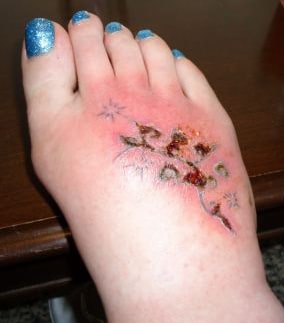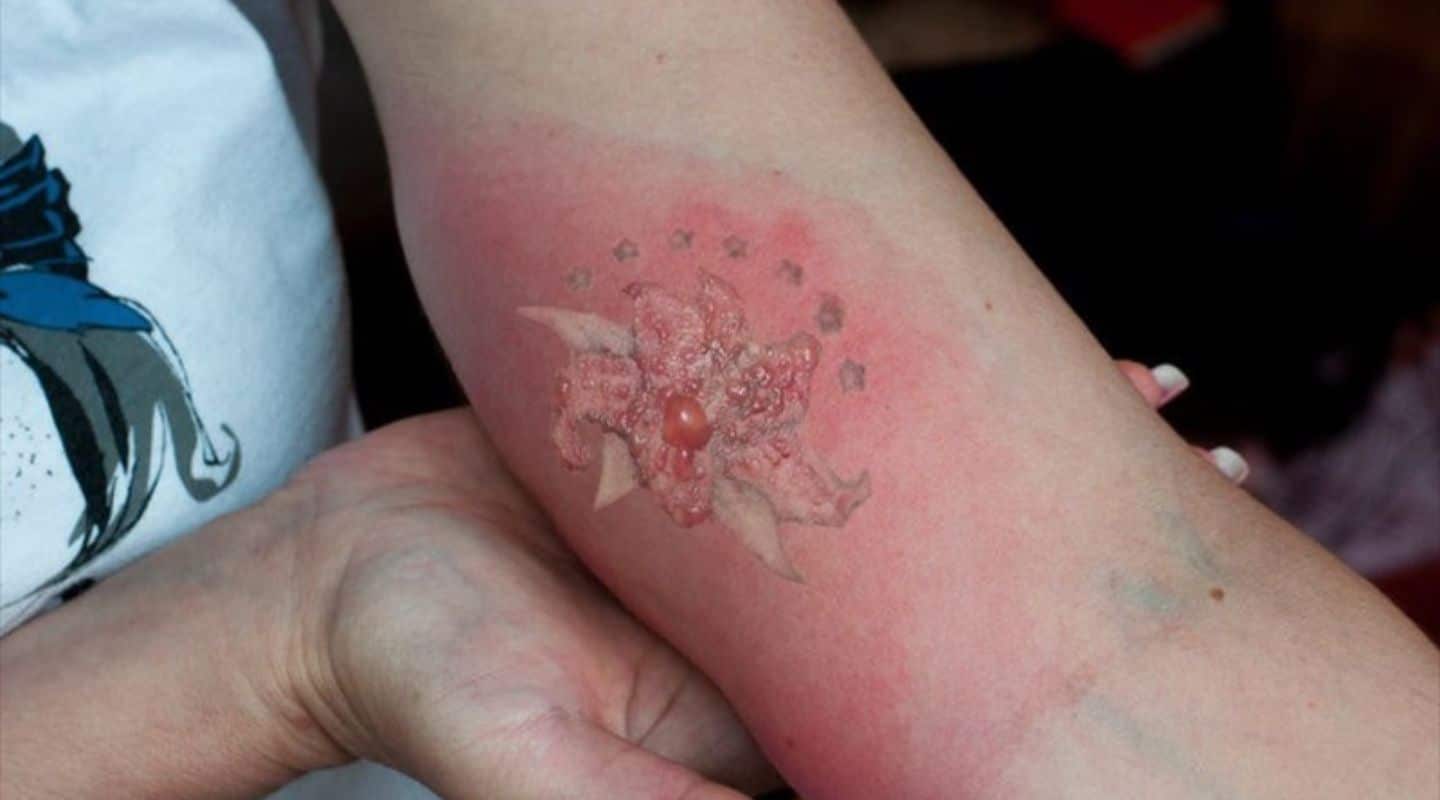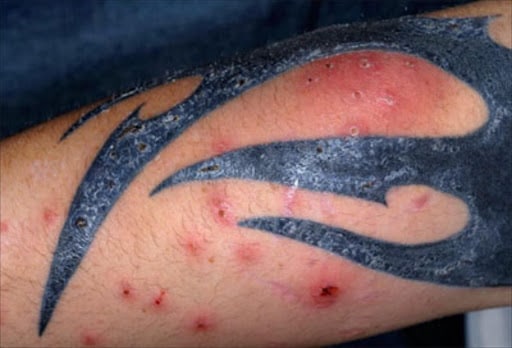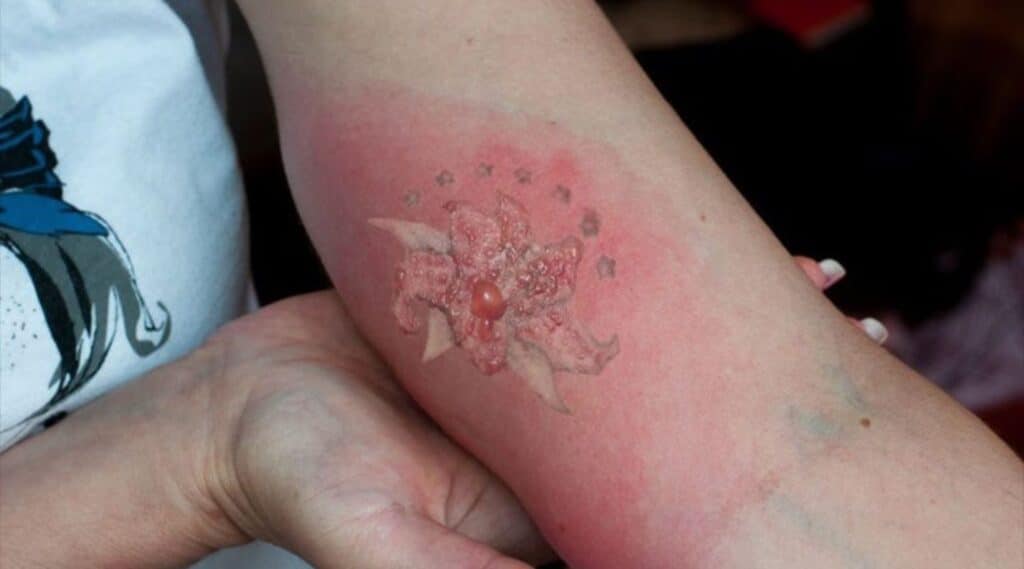Featured image credit: mymed.com
Tattoos are a bold, beautiful way to wear your heart on your sleeve - quite literally. However, as with anything that involves the body, tattooing isn't risk-free.
From infections to allergic reactions, it's important to be aware of the potential hazards before you go under the needle. So, let's pull back the curtain on the risks of tattooing.
Tattoos: Recognize the risks

Source: artkabnguyen.wordpress.com
In just a few hours, you may be the proud owner of a brand-new tattoo, but don't let that deter you from giving permanent body art significant thought. Make sure you are aware of the hazards and the procedures involved before getting a tattoo.
A tattoo is a permanent mark or design that is applied to your skin by inserting pigments through small punctures into the epidermis.
Typically, a hand-held device similar to a sewing machine is used by the tattoo artist to repeatedly pierce the skin with one or more needles. The needles inject little ink droplets with each puncture.
The procedure, which is carried out without anesthesia, results in some minor bleeding and minimal to perhaps severe pain.
Negative Effects of Tattoo

Source: healthline.com
Tattoos damage the skin, which makes it potential for skin infections and other problems, such as:
Allergy symptoms. Red, green, yellow, and blue tattoo inks in particular might result in allergic skin reactions, such as an itching rash at the tattoo location. Even years after getting the tattoo, this could still happen.
Infected skin. Following a tattoo, a skin infection is possible.
Further skin issues. Around tattoo ink, a swelling condition known as a granuloma can occasionally develop. Keloids, which are elevated spots brought on by an excess of scar tissue, are another side effect of tattooing.
Blood-borne illnesses. You may get different bloodborne infections, such as methicillin-resistant Staphylococcus aureus (MRSA), hepatitis B, and hepatitis C, if the tattooing equipment was contaminated with infected blood.
Complications with MRI. Rarely, MRI tests can result in swelling or burning in the affected areas due to tattoos or permanent makeup. Pigments used in tattoos may cause problems with the image's quality.
If you have an adverse response to the tattoo ink or develop an infection or another skin issue close to a tattoo, medication or other therapy may be necessary.
Other Tattoo Health Risks

Source: sowetanlive.co.za
Cancer
Are tattoos linked to skin cancer? Researchers have been examining thi s issue for many years. Tattoo ink contains several substances that may be connected to cancer, despite the fact that there is no direct correlation between tattoos and skin cancer.
A change in skin pigmentation is one of the earliest symptoms of skin cancer, particularly melanoma. People might not immediately notice these changes if their bodies are "blacked out" by tattoo ink.
Because of this, tattoos shouldn't be applied over pre-existing moles, birthmarks, or other anomalies or skin discolorations.
Hepatitis
The risk of contracting hepatitis when having a tattoo is significant. Nearly all instances of hepatitis transmission occur when people exchange needles.
This is why you must do a complete background check on your tattoo artist before letting them ink you.
Before tattooing each client, check the store many times to make sure that all staff members are using fresh, clean needles and gloves. Run away if you see someone getting tattoos on many people or things with the same needle.
High temperature, chills, and sweating are examples of more serious consequences. An infection could require a course of antibiotics or surgery to be treated.
Since tattoo inks are permanent, a rash could be an allergy to the ink, and the reaction might not go away.
If you have any worries or negative reactions to your tattoos, consult your doctor.
If you're looking for more information on how tattoos affect your body, take a look at our list of articles below for more helpful information.
- Tribal Dragon Tattoo Ideas - January 13, 2024
- Anchor Tattoo on Hand - August 17, 2023
- Anxiety Tattoo Ideas - August 15, 2023

